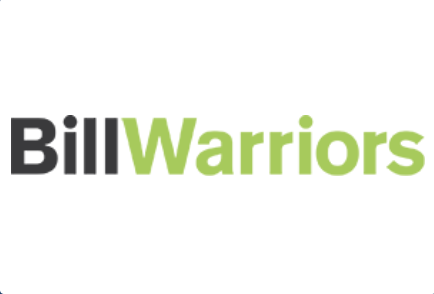Society has moved from a money-saving climate to a spending one. The majority of people live from paycheck to paycheck instead of accumulating their funds.
Living paycheck to paycheck doesn’t sound like a problem, but what if your expenses suddenly suffer an increase? If you aren’t prepared for a change in how much money you spend, you could find yourself in debt and desperately in need of cash.
Even just after you’ve received your paycheck, an unexpected increase in expenses can be uncomfortable. But when you’re between paychecks and run out of spending funds, this could cause plenty of issues with your finances.
So, what do you do if you’re really in a bind? If you run out of money and can’t wait until your next payday, you might have to find an emergency loan to tide you over, but how do you get a loan till payday?
Your local bank, credit union, or even friends can provide you with emergency loans.
Securing a Loan
There are many different kinds of loans to choose from: credit from your bank or another lender can also help provide you with the necessary funds. Both loans and credit typically need to be paid back to the lender. Depending on which loan you choose, the amount received can vary, as can the time is given to repay it.
Securing a loan depends on your credit score and whether you are already in debt. If this is the first loan you are requesting, you will likely be allowed to quickly borrow from your credit union or bank.
The same is true if you have a history of borrowing money but have been able to pay it all off promptly. If this is the latest in a long line of unpaid debts or loans, processing your newest request will take longer and might even be denied.
Let’s look at a few options you may have available to get a loan till payday.
1. Traditional Bank Loans
Your local bank or credit union can help secure you a large loan. However, depending on the loan’s size, traditional banks will take longer to process your request and send you money. The bank could take a couple of days or as long as a couple of weeks. If the sum you are requesting is substantial, but you aren’t desperate, your local bank is an excellent option to secure a loan till payday.
Using a credit card from a traditional bank is also a quick way to pay off some immediate fees. As long as you don’t exceed your credit card limit, the credit will tide you over until you can pay off the charges with your next paycheck.
2. Credit Card Advance
A credit card cash advance is another option concerning your bank. However, an advance isn’t always the best choice, especially if you’re already living within a stringent budget. An advance can be more expensive than a simple loan, with fees and interest attached.
The benefit to an advance is you get the money immediately from a bank or ATM. It’s a perfectly fine option if you need immediate money, especially if you know you can cover all existing fees once you get paid. But it can also be a risky endeavor if you’re not sure you can pay off the resulting charges and interest.
3. Installment Loans
Installment loans are also an easy way to receive quick funds. These days, installment loans are even easier to receive because you can request a loan online. Installment loans allow the loan to be paid off in multiple installments over a certain time.
Depending on your contract with your lender, installments can be paid off over two months or two years, or even longer if you require.
These kinds of loans supply a wide range of available funds from a few hundred dollars to a few thousand. You can adjust the installments to be more suited to your lifestyle, so you don’t break your account by paying back the lender. They’re a quick and convenient way to receive a loan till payday.
4. Title Loans
Title loans, or secured loans, need to have collateral to come through. The borrower will offer the lender an asset to hold on to until their debt is paid. Typically, the asset used is the borrower’s car, as it has value and can be easily placed in the lender’s possession.
Once the loan has been paid back, the borrower will take back their asset or car. However, if the debt is not paid on time, the lender will keep the car, and the borrower will lose that particular asset.
The asset used depends on the amount borrowed. The higher the amount, the higher the value of the asset. Title or secured loans can provide a quick transfer of money, but they can also be quite risky if you’re not sure you can pay the lender back.
5. Line of Credit
Lines of credit are convenient ways to ensure you won’t run out of money before your next paycheck. A line of credit is a limited loan amount that allows you to borrow money up until the maximum amount of credit is reached. Once you repay the total loan, you can take out another line of credit.
Lines of credit can supply you with secure funding as long as you continuously pay them off on time. If you have a line of credit and become low on money, the borrowed amount provides a convenient loan till payday. Therefore, there’s less stress involved in finding a proper loan and securing enough emergency funds.
Credit unions or bureaus require background checks to provide loans. Applications can potentially take a long time to be processed, especially if your credit score isn’t good.
The problem with lines of credit is they can cost more money in the long run. If you’re not careful, overspending can lead to surpassing the limit of your loan. Additionally, high interest rates and late-payment fees can cause you to pay back more than you originally borrowed.
Though these loans are very user-friendly and flexible, they can encourage more spending and increased borrowing, which can prove ruinous in future endeavors.
6. Payday Loans
Payday loans can be problematic depending on your situation, and because of that, the federal government heavily regulates payday loans in most states. Currently, fourteen states have banned payday loans.
A payday loan is a small, unsecured loan. Typically, payday services offer payday loans or cash advances. Like a credit cash advance, the borrower receives quick cash from the lender. Traditionally the loan is repaid on the borrower’s next paycheck, hence the name.
Today the date of repayment is more flexible. The amount repaid also contains fees or charges instigated by the lender for their services.
Lenders of payday loans usually need proof of employment before they loan money to a borrower. In today’s world, online applications are the most common way to secure a payday loan.
Payday loans are popular because they require little information for quick money transfers and do not discriminate if a potential borrower has a bad credit score. They are one of the easier loans to access but are also one of the riskiest.
High-interest rates on payday loans often lead to inflated numbers of bankruptcy for those borrowing money. The loans also use automatic rollover practices and sometimes unfair or illegal debt collection, which leaves borrowers in more debt than before. Increased debt could lead to them losing all their money and assets.
7. Family and Friends
Family connections and good friends can sometimes bail you out more quickly than any bank or lender. The benefit to such connections is that you don’t have to provide much information, especially with cash loans. Family and friends also tend to be more lenient about being repaid and rarely expect more money than you can give.
However, it’s easier to forget to repay a loan from someone who won’t charge you interest. Borrowing money from someone you know well can lead to strained relationships, although the same result could occur if you find yourself too proud to ask for help.
Loans from family and friends also aren’t failsafe for everyone and often not an option for anyone in particularly dire financial straits. But if the opportunity arises and your return of the borrowed money isn’t critical, such loans have the potential to be lifesaving, or at the very least, stress-reducing.
Conclusion
If you experience an increase in expenses and you’re between paychecks, a loan might be your only option to alleviate your debt. Depending on what kind you receive, you can save yourself from immediate paybacks or expensive interest.
Loans that arrive quickly are often what most people need. But sometimes, quick loans can result in high fees and unexpected charges. Choosing the right loan for you means paying attention to the required payments, potential future costs, and collateral.
If you find the right loan for you to tide you over until your next payday, quick payments in manageable amounts can prevent the possibility of falling into debt and help you plan out your next month’s finances.

